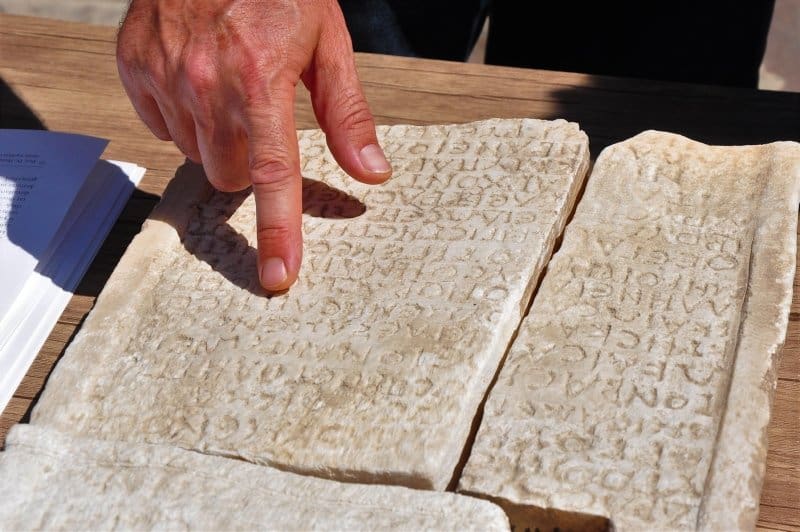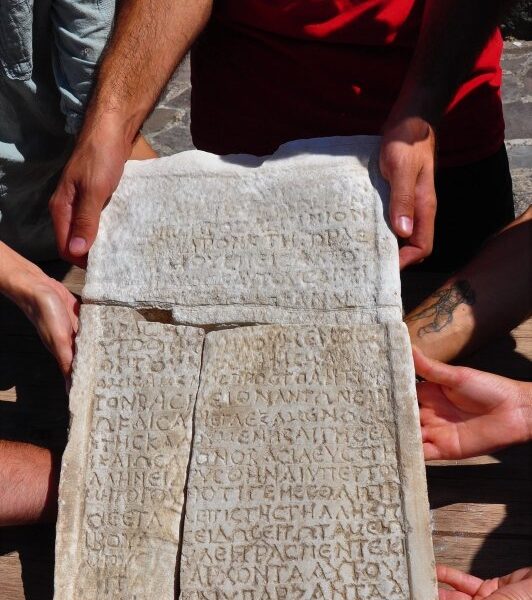The 1800-year-old inscription, consisting of 3 pieces of marble, found in the excavations in the ancient city of Aigai in western Turkey’s province of Manisa, was deciphered.
The translated marble inscription written in ancient Greek describes the Aigai people’s distress as a result of Roman tax officials’ practices.

Aigai was established on the Gün Mountain in the Yund Mountain Range, which was named Aspordene in ancient times. The ancient city, whose name comes from the Greek word “aíga” (goat), is often referred to as “the city of goats”, which is not surprising considering its high altitude and rocky lands.
The inscription was found during the excavations in the parliament building in the ancient city of Aigai in 2005.
In the inscription, it is stated that the people of Aigai sent an envoy named ‘Fortunatus’ to the Roman emperor, reporting their complaint about the different collection of taxes from goat skin by each collector and demanding that this situation be resolved. It turned out that the Roman Emperor, who took into account the complaints and demands of the Aigai people, fixed the taxes taken from goat skin at a rate of 1 in 6 and stated that he would punish the tax collectors who did not comply with this rule.
Aigai, located in the Yunusemre district, is one of the 12 Aiol cities in Western Anatolia and has a long and fascinating history of 2,800 years.
Mentioned by both Herodotus and Strabo, it was an ancient Greek, and later Roman city and bishopric in Aeolis. Initially, the city was in a possession of the Lydian Empire and later the Achaemenid Empire when it conquered the former.


